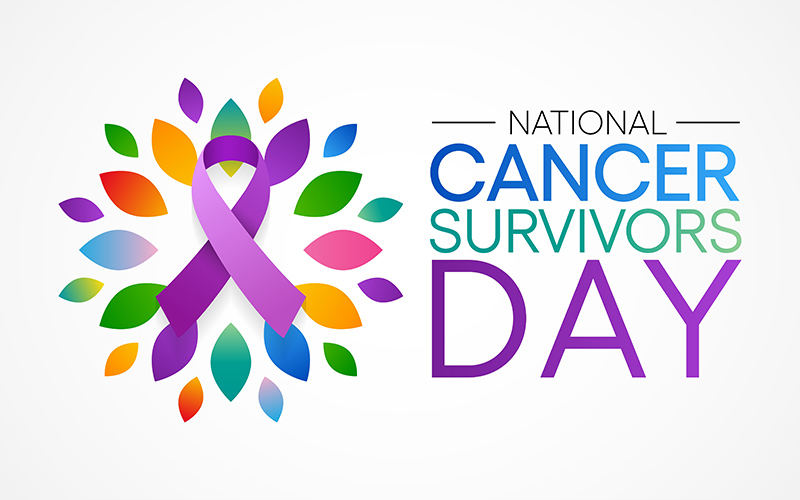
On Sunday, June 5, 2022, we will commemorate National Cancer Survivors Day®, as we pause to honor the strength and courage of those living with a history of cancer. It’s a celebration for those who have survived; an inspiration for those recently diagnosed; a gathering of support for families, and an outreach to the community.
Survivorship: During and After Treatment
The phrase “cancer survivor” can mean different things to different people. It’s often used as a general term describing anyone living with a history of cancer—from the moment of diagnosis through the remainder of life.
Not everyone who has or has had cancer uses the word “survivor.” For some, this term doesn’t feel right. They may feel more comfortable defining themselves as a “person who has had cancer,” “a person living with cancer,” or another way.
What’s most important for those living with a history of cancer is to be able to explain and discuss your medical and emotional needs with your healthcare team and loved ones. That’s why people should find words they are comfortable with to name and navigate their personal changes and challenges which have emerged from their cancer diagnosis and treatment.
Some people find it’s hard to cope and adjust after active cancer treatment ends. This transition usually means less frequent contact with their healthcare team—it can be scary to leave the support of the care team who encouraged you through treatment. People may feel uneasy or distressed before a medical checkup, at certain milestones, or more often. This usually gets better over time, but if it doesn’t, let your healthcare team know. For others, treatment never ends, and they deal with cancer and its effects every day. It’s important to remember that people experience survivorship in many ways and talking with your healthcare team can help you know what to expect and how to manage changes.
How can I find help in navigating my survivorship?
If your cancer treatment is complete, it is helpful to ask your doctor for a summary called a “survivorship care plan” that outlines the follow-up care recommended for you. Many people feel reassured to know the next steps in their medical care. This also helps you understand who will provide different medical services in the future and how often, including the role of your primary care provider.
There are also many groups and resources for people diagnosed with cancer, including online and in-person. Ask your healthcare team for survivorship resources in your community. You may want to find a support group, seek the help of a therapist or social worker, or learn more about becoming an advocate for other patients.
Local resources for cancer survivors include Cancer Lifeline and Living with Hope online cancer support group, a partnership between Valley Girls & Guys and Valley Medical Center. Find more resources for cancer survivors at cancer.org/treatment/survivorship.

